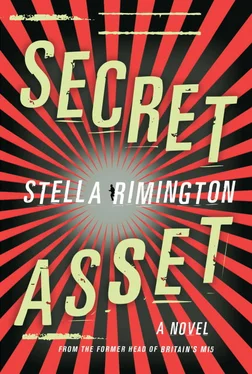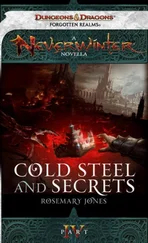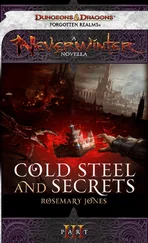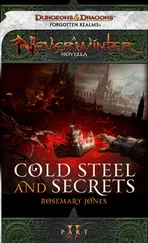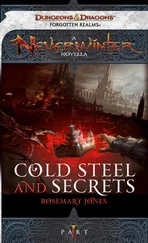Maguire still looked angry. Liz decided to use the waiter’s intervention to change the subject. “Is Rotterdam a favourite place of yours?”
Maguire shrugged to show his indifference, but then grudgingly started to talk. “It’s where I would have wanted to relocate if I ever got blown. Though Rob always said it would have to be further away. Assuming they didn’t catch me first, of course.” He looked at Liz; they both knew what he meant. In the pre-peace years, without exception every informer the IRA had unearthed and managed to get hold of had been murdered.
“Why Holland?” asked Liz, keen to keep the man talking.
“I look a bit Dutch, I suppose,” he said. “I feel I blend in here.” Viewing his features—ruddy cheeks, the thinning sandy hair, blue eyes—Liz saw the truth in this. Maguire could pass for a senior lecturer at the local university. All he needed was a pipe.
“Is that why you wanted to meet here?”
“Only partly.” He stared out at the harbour with a hard look in his eyes. “I hope they wouldn’t kill me now, if they knew we were talking—or knew that for years I talked to your colleagues. But it seemed safer on the whole to meet outside Ireland.”
Liz wanted to keep him away from talk of danger. She needed to engage his curiosity instead of his fear. Make him think, Liz thought, get him interested. “Tell me,” she said, “what do you think happened to the person Keaney recruited?”
“What you mean is, do I think they’re still there?” said Maguire almost contemptuously.
“Among other things, I suppose,” Liz said with a diffidence she didn’t feel. Don’t let him take over the interview, she told herself. “Assuming Keaney’s story is true.”
“Why does it matter?” asked Maguire irritably. “There couldn’t have been any damage done, could there? If there really was a mole in place, it’s pretty hard to see what good it did Keaney and his pals.”
He stopped when he noticed that Liz was shaking her head. He looked at her, curiosity subduing contempt, and Liz said sharply, “You’re missing the point.” There was no reason to try to appease this man, she decided. “Keaney probably never expected his plant to help the IRA directly—after all, he couldn’t be sure they’d ever do work on Northern Ireland, could he?
“It was subtler than that. Keaney probably found an entry-level person. Someone flagged as a high-flier, with the potential to rise within the organisation. An Oxford graduate, presumably, who might in the course of time be able to do a lot of damage. I don’t suppose the aim was to help the IRA directly; the objective was to screw up the Brits in some way or another.”
Maguire looked intrigued by this, but equally clearly wasn’t going to say so. Instead he argued, “I can’t believe Ireland is top of the agenda these days. The war is over. So what does it matter. I’d have thought it was imams you were after, not Irish.”
Liz shrugged. “That’s the worry of course. That it all gets ignored in a post-9/11 age. Then it starts up again. It’s done that often enough before.”
“You think this mole might be active? Even today?” Maguire sounded interested now despite himself.
It was Liz’s turn to shrug. “There’s no reason to think a person like that would want a cease-fire, is there?”
The waiter brought Liz’s coffee over, and as they waited for him to go, Maguire seemed to check himself. “I don’t believe it,” he declared. The look he gave Liz was unfriendly. “And, in any case, it’s your problem. I’ve passed on Keaney’s message as he asked. And that’s it, as far as I’m concerned. I don’t care what you do with it.”
Liz said quietly, “I was hoping you might be able to help,” then concentrated on stirring her coffee, which was hot despite the layer of rich cream at the top of the cup.
“What could I possibly do?” demanded Maguire indignantly. “Even if I wanted to.”
“Help us find out who Keaney recruited.”
“What makes you think I can do that?”
“Maybe you can’t,” Liz admitted. “But you’re better placed than we are to find out. You say Keaney said the mole was recruited at Oxford. There must have been some link between Keaney and the University, but it’s not exactly an obvious one to us.”
“Keaney hated my guts.”
“Yes, but you knew him. We couldn’t get close. At least you can try.”
“Why don’t you use another of your touts?” he added caustically, “I’m sure you’ve got plenty to choose from. Use someone Keaney trusted.”
“We couldn’t do that without telling the person about the mole. Too big a risk. You must see that.”
Maguire ignored her. Suddenly he demanded, “What’s in it for me?”
She didn’t even bother to reply. He had never asked for money, and she didn’t think he wanted to be paid now. It was just a way of deflecting her request.
Maguire went on. “What would I be helping, can you tell me that? The situation’s changed completely. Whoever this person was, there’s nothing they could do to hurt you—or help the IRA. The world’s moved on. The war’s over. So why do you need me? Other than to help you close the file?”
Liz took a deep breath. Instinct told her that her only chance of winning Maguire’s support was to level with him.
“You know as well as I do, Mr. Maguire,” she said, “the war’s not over. It’s just reached a different stage. I don’t need to give you a lecture on the history of the IRA. Or on the nature of treachery,” she added. She saw Maguire flinch. “Everyone has their reasons, and treachery is nearly always also loyalty. But what matters is the nature of the cause we’re loyal to. That’s why we need to find this person. Their cause, whatever it is now, is not ours. Nor yours either, Mr. Maguire. This is unfinished business. And I’m not talking about the file.”
Again the shrug, superficially uninterested, but this time Liz could see Maguire was thinking. Finally he spoke, and for the first time there was pathos instead of anger in his voice. “But don’t you see, I’m finished business? I just want to be left alone.”
And before Liz could reply, he stood up. Without saying a word, he threw some euros on the table and walked away. Liz took another sip of her coffee; it was cooler now. She looked with near despair at the money Maguire had left on the table. And to think she had believed she was getting somewhere.
Dennis Rudge was sitting at the wheel of a taxi parked at a rank in the middle of Capel Street. He had a cup of coffee in one hand and a copy of the Sun propped on the dashboard. His radio, tuned to Magic FM, was quietly playing soft pop, with occasional voice interruptions, which sounded to passersby like traffic updates. From where he sat he had a clear view of the bookshop and of Doris’s shop front across the road. He was in eye contact with Maureen Hayes and Lebert Johnson, sitting at a table outside the Red Lion pub further down the street. Lebert, who had a glass of something brown in front of him, was doing the Daily Mail crossword. Maureen was drinking mineral water, knitting and listening through headphones apparently to her iPod. In the other direction Alpha 4 and Alpha 5 were sitting in a dirty Peugeot 307, bickering noisily whenever anyone came past. Further members of A4 were parked up strategically in side roads, and a couple more cars were circling around the area.
In Doris Feldman’s sitting room, above her ironmonger’s shop, sat Wally Woods, comfortably ensconced in Doris’s armchair, with Esther the ancient cat sharing his knee with a powerful pair of binoculars.
Doris’s telephone call to the police five days before at three in the morning had turned out to be a blessing in disguise. As always with A2’s surreptitious entries, Special Branch had been told in advance about the operation. Hearing from uniform of Doris’s 999 call, they had promptly rung in to discuss the options with A2 control. The priority was clearly to reassure the caller, and one option was simply to explain that the “burglary” she’d seen was entirely innocent: the fuses had blown and the owner had sent in friends to replace them—something like that. The Special Branch men were adept at making up plausible stories. But if in the normal course of a day she mentioned the events of the weekend to the bookshop owner, it would be disastrous.
Читать дальше
